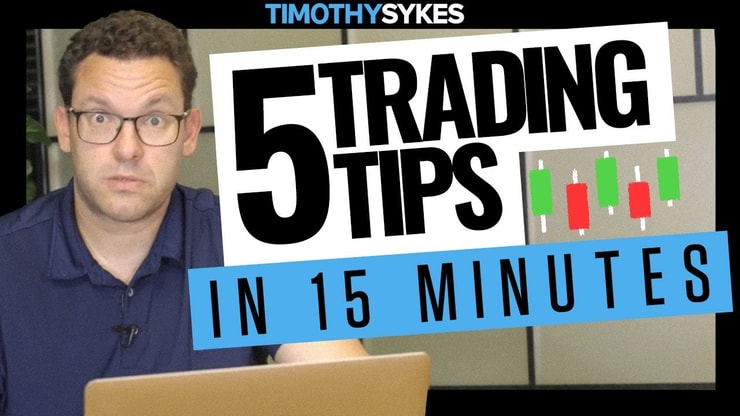Becoming a stock broker in Canada is a challenging but rewarding career path that involves multiple steps from education to registration. The role is crucial for facilitating trades in securities like stocks, bonds, and options within the Canadian investment marketplace. This profession is not only about knowing the numbers; it’s about understanding people, investment strategies, and the fast-paced world of finance.
You should read this article because it provides a comprehensive guide on how to become a stock broker in Canada, covering everything from educational requirements to career paths.
I’ll answer the following questions:
- What is the role of a stock broker in Canada?
- What types of stockbrokers are there in Canada?
- What educational qualifications are needed to become a stock broker in Canada?
- How do you complete the Canadian Securities Course (CSC)?
- What steps are involved in starting your career in stock broking?
- What skills are required to work as a stockbroker in Canada?
- How is the compensation structured for stockbrokers in Canada?
- What are the differences between a financial advisor, an investment banker, and a stock broker?
Let’s get to the content!
Table of Contents
- 1 What Is a Stock Broker?
- 2 Understanding the Role of a Stock Broker
- 3 Educational and Professional Requirements
- 4 Starting Your Career in Stock Broking
- 5 Skills Required for Working as a Stockbroker in Canada
- 6 Compensation and Earnings
- 7 Differentiating Between Financial Roles
- 8 Key Takeaways
- 9 FAQs about Canadian Stock Brokers
- 9.1 What Qualification is Needed to Become a Stock Broker in Canada?
- 9.2 Is a Stock Broker a Promising Career in Canada?
- 9.3 How Do I Register as a Stock Broker in Canada?
- 9.4 What Steps Are Required for Securities Registration?
- 9.5 How Do You Manage Wealth for Customers?
- 9.6 What Resources Should You Review for Career Development?
What Is a Stock Broker?
A stock broker acts as a middleman between investors and the stock market. They buy and sell stocks, bonds, and other financial products on behalf of clients. As someone who has had to navigate the choppy waters of penny stock trading, I can say having a reliable broker makes a significant difference. However, unlike what I do, which is trading, brokers are more inclined toward providing a range of services like financial planning and portfolio management.
Understanding the Role of a Stock Broker
Stock brokers are more than just dealers of shares in the stock market; they’re the connection between investors and a range of financial products like stocks, commodities, and even futures. Responsibilities include securities trading on exchanges like the Nasdaq and Dow Jones. This isn’t day trading penny stocks; we’re talking a whole other realm here, people. Firms on Wall Street, investment firms, and even organizations regulated by the government are where these brokers usually hang their hats.
What Does a Stock Broker Do?
A stock broker performs a variety of roles, from executing trades to offering investment advice. They work with institutions and individual investors to meet financial goals. In my years of trading and teaching, I’ve encountered brokers who are the backbone of any transaction, managing intricate details that others overlook.
Types of Stockbrokers in Canada
- Full-service Stockbrokers: Provide a full range of investment products, including mutual funds and insurance.
- Discount Stockbrokers: Focus primarily on executing trades, without much financial advice.
- Online Stockbrokers: Offer an online platform for DIY investors who don’t need hands-on guidance.
Educational and Professional Requirements

You’re not walking into this field without some hardcore knowledge and training. You usually need a college or university degree, and you’re going to take an examination like the Canadian Securities Course. We’re talking serious study, not just scanning financial news on your phone. For example, a career in investment banking would require a much more complex set of skills and examinations. If you’re not cut out for rigorous academic challenges, maybe it’s not for you. You need to register and get your securities license for legal access to trading platforms. In my journey, I never cut corners, and neither should you if you aim for long-term success.
More Breaking News
- What Recent Developments Mean for Opendoor Technologies Inc Shares
- Can Color Star Technology’s Bounce Last After its 94% Rise?
- MicroStrategy stock Surges Amid Promising Innovations and Strategic Growth: Is Now the Time to Invest?
Get a Degree
Typically, a bachelor’s degree in finance, business, or economics is the starting point. Some even pursue an MBA. I don’t have an MBA, but I know the importance of education in making informed decisions, whether it’s a trade or a long-term investment.
Complete the Canadian Securities Course (CSC)
The CSC is a foundational step, teaching you about securities, exchanges, and the basics of the industry. This exam gives you the qualification to trade in Canada. Trust me, it’s like learning the ABCs before diving into complex trading strategies.
Register as a Stockbroker in Canada
After you pass your exams, you need to register with the securities commission in your province. You’ll also be registered in the National Registration Database (NRD).
Once you’re registered and have access to trading platforms, you might be tempted to dive right in. Hold your horses! Understanding the basics of day trading is crucial, even for stock brokers. You’ll be facilitating trades for clients who might be day traders themselves. Knowing the strategies, risks, and regulations that apply to day trading can make you a more versatile broker. Want to get the basics down? Here’s a guide on day trading basics you shouldn’t miss.
Starting Your Career in Stock Broking
Getting your foot in the door isn’t easy. Internships and entry-level jobs in investment firms or brokerage companies are crucial first steps. Remember, employment isn’t guaranteed; you’ve got to prove your worth. This part of your career path will involve a lot of hustle. Build up your customer base, develop contacts, and dive into different investment programs. In my experience, no one gives you a free pass; you’ve got to earn your stripes.
Find an Internship or Entry-Level Job
Early career steps often involve internships or entry-level jobs at brokerage firms or investment banks. This is where you can gain practical work experience, which is invaluable. Think of it like paper trading before you risk real money.
Speaking of paper trading — many stock trading apps offer simulated trading environments where you can practice without risking real money. This is a fantastic way to get a feel for market dynamics and to test out trading strategies. If you’re looking for a way to practice before stepping into the real game, check out this article on the best stock trading apps.
Getting Hired by a Firm
Upon successful completion of your exams and internship, you’ll be ready to be hired. Employers look for candidates with strong communication skills and a knack for numbers, just like they’d look for in a good trader.
Networking and Building Connections
Knowing the right people in this industry can give you a leg up. A robust network can open doors to better job positions and career growth, much like how trading communities can offer invaluable tips and insights.
Skills Required for Working as a Stockbroker in Canada

You need more than just the ability to pick up a phone and read off a script. Communication skills, in-depth research abilities, and a fair amount of mathematical knowledge are key. And don’t even think about getting by without understanding how to analyze market trends and orders. Like in trading, where I emphasize patterns and trends, brokers need to understand the dynamics of investing. Tech-savviness is a must; you need quick access to financial websites, real-time data, and market statements. Trust me, skills define your worth in this business.
Sales Technique
In addition to an understanding of the stock market and securities, a good stockbroker needs strong sales skills. They have to sell their services to potential clients, much like I sell my courses.
Communication Skills
This role requires stellar communication skills. Brokers need to explain complex financial data in simple terms—something I’ve made a career out of in the trading world.
Mathematics
Sound math skills are essential for analyzing market data, calculating risks, and making smart trading strategies. The numbers don’t lie, whether you’re trading penny stocks or managing hedge funds.
Computer Literacy and IT Skills
In today’s digital age, brokers need to be tech-savvy. Most trades occur online, and brokers often use advanced software for market analysis. I always say: the better your tools, the better your trades.
While being tech-savvy is essential, the tools you use can make or break your career. Stock brokers often rely on advanced trading platforms that offer real-time data, charting tools, and quick execution of trades. As someone who’s been in the trading game for years, I can’t stress enough the importance of a reliable trading platform. It’s not just about the bells and whistles; it’s about how effectively you can execute trades and manage portfolios. For a deeper dive into what to look for in a trading platform, check out this guide on the best trading platform for day traders.
Compensation and Earnings
Let’s get real. You want to know about the money. Compensation in this career involves a variety of revenue streams—commissions, salary, and sometimes bonuses. You won’t find a flat rate here. Some brokers make a decent score, while others don’t, depending on their skills, the firms they work for, and their cities of employment. A broker in a major country’s financial hub usually fares better. Always keep tabs on the minimum requirements set by your employer.
How Much Do Stockbrokers Make in Canada?
Salaries can vary widely depending on experience, location, and the firm you work for. However, compensation often includes a base salary plus commission. Just remember, it’s not about the money you make, but the money you keep.
Differentiating Between Financial Roles

It’s not all a blur of suits and fancy titles. A stock broker differs significantly from an investment analyst or a dealer. The type of work, responsibilities, and even the range of investments they deal with can be as diverse as night and day. Whether it’s investment banking, firms, or even government organizations, understanding these roles is crucial. In my teaching career, I always make sure to clarify roles because confusing them can make or break your success. Don’t take the names for granted; each has its unique set of requirements and duties. And that’s the real talk you need to know.
Broker or Trader: Which Career Is Right for You?
The main difference between a broker and a trader is their approach to the market. Brokers facilitate trades for clients, while traders, like me, buy and sell securities for their own portfolios.
Financial Advisor vs. Stock Broker
The main difference between these roles lies in the range of services offered. Financial advisors offer comprehensive financial planning, whereas stockbrokers primarily execute trades and may offer some financial advice.
Investment Banker vs. Stock Broker
The main difference is the type of client they serve. Investment bankers work with institutions on large financial deals, whereas stockbrokers generally work with individual investors.
Key Takeaways

Becoming a stockbroker in Canada is a multi-step process that requires a strong educational background, a knack for numbers, and excellent people skills. Just remember, in finance, as in trading, there’s no substitute for hard work and dedication.
Trading isn’t rocket science. It’s a skill you build and work on like any other. Trading has changed my life, and I think this way of life should be open to more people…
I’ve built my Trading Challenge to pass on the things I had to learn for myself. It’s the kind of community that I wish I had when I was starting out.
We don’t accept everyone. If you’re up for the challenge — I want to hear from you.
Apply to the Trading Challenge here.
Trading is a battlefield. The more knowledge you have, the better prepared you’ll be.
Do you think you’re cut out to be a stock broker? Let me know in the comments — I love hearing from my readers!
FAQs about Canadian Stock Brokers
What Qualification is Needed to Become a Stock Broker in Canada?
You’ll need a bachelor’s degree in finance, business, or economics and must complete the Canadian Securities Course (CSC) to qualify.
Is a Stock Broker a Promising Career in Canada?
Yes, it can be lucrative and rewarding but demands dedication and continuous learning, like all high-stakes fields.
How Do I Register as a Stock Broker in Canada?
You need to register with the securities commission in your province and be listed in the National Registration Database (NRD) after passing your exams.
What Steps Are Required for Securities Registration?
To become a stock broker in Canada, one of the first steps you’ll need to take is securities registration. Usually, this involves taking a series of exams on relevant topics to prove your competency. These exams cover essential information needed to handle customer accounts responsibly.
How Do You Manage Wealth for Customers?
Managing wealth for customers is a crucial part of being a stock broker. This involves setting up various types of accounts to help customers grow their wealth. Your development as a broker within a company will often depend on your success in this area, which ultimately affects the bottom line.
What Resources Should You Review for Career Development?
For your career development, it’s crucial to stay updated with reviews of industry best practices and guidelines. Knowledge of varied topics is essential for sustaining a successful career and providing accurate information to your customers.




Leave a reply